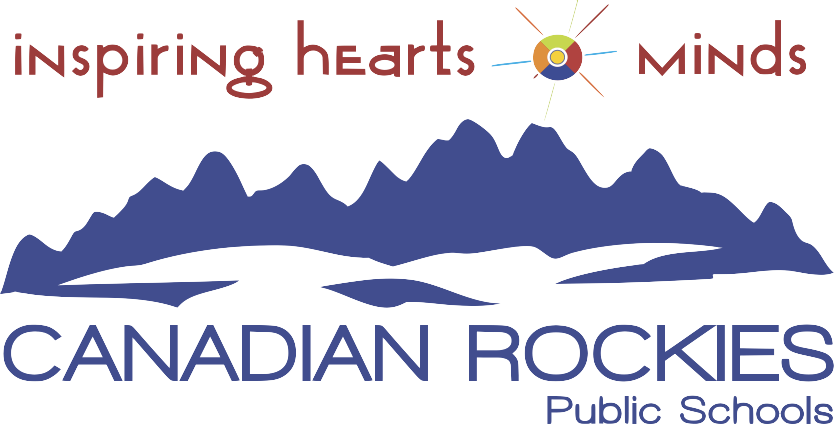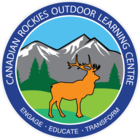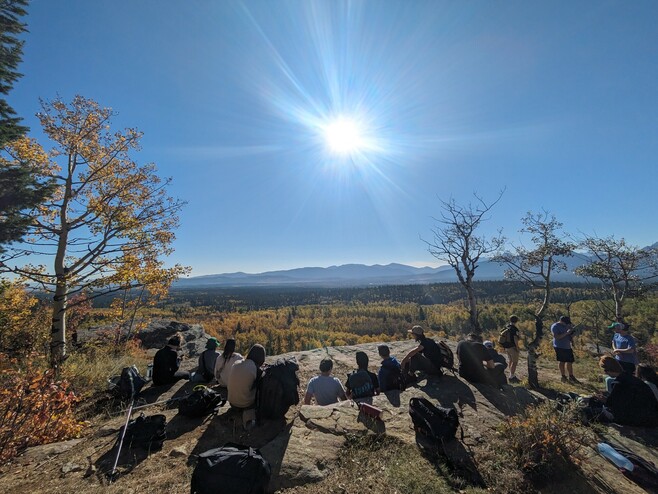Building a sense of responsibility for the world around them.
Not all classrooms have four walls. In Canadian Rockies Public Schools (CRPS), ALL students from Kindergarten through Grade 8 engage in meaningful outdoor learning that brings curriculum to life through direct experience with the land. From schoolyards and forest trails to meadows and wetlands, students connect to nature in ways that deepen their understanding, spark curiosity, and build a sense of responsibility for the world around them.
A living classroom.
This approach is guided by the division’s commitment to an integrated living classroom, where the natural environment becomes a hands-on space for inquiry and discovery. Whether tracking animal movements in fresh snow, measuring shadows with natural materials, or reflecting beside a campfire, students discover that learning can be active, joyful, and deeply rooted in place.
Curriculum-linked learning across grades.
Outdoor learning in CRPS is fully integrated with Alberta’s Programs of Study. Students might build mini shelters in Kindergarten, investigate water cycles in Grade 3, explore Alberta’s natural resources in Grade 4, or study buoyancy and weather patterns in Grade 5. Middle school students extend these experiences through outdoor education days featuring navigation challenges, fire building, and wilderness first aid.
Land-based learning philosophy.
Learning in, of, and for a place cultivates a deep relationship with the natural world. As students begin to observe and engage with local ecosystems, they gain not only knowledge but build empathy, understanding, and a sense of belonging. As Indigenous Scholar Robin Wall Kimmerer reminds us, “The land is the real teacher.” In CRPS, the land teaches patterns, cycles, relationships, and the vital truth that we are all part of the ecosystem.
Indigenous ways of knowing, doing and seeing.
CRPS is grateful to partner with Stoney Nakoda Knowledge Keepers who generously share stories, teachings, and traditional ecological knowledge. Students explore tipi building, take part in water walks, and learn about the sacred relationships between land, people, and place - deepening their understanding, respect and appreciation of Indigenous Peoples through a blend of Western science and Indigenous wisdom.
A unique ecological setting.
Situated at the gateway to the Rocky Mountains, the OLC lies at the intersection of prairie, forest, and alpine ecosystems. Students learn in diverse natural spaces - from aspen and conifer forests to vibrant meadows and shallow glacial lakes. Wildlife sightings, seasonal changes, and landform features become part of everyday learning, offering rich opportunities for scientific inquiry and observation.
Climate action and environmental stewardship in focus.
Students explore real-world environmental issues such as climate change, weather systems, and resource use - especially in the upper elementary and middle years. Through partnerships with groups like Parks Canada and Friends of Kananaskis, students take part in service projects such as bear attractant removal or litter cleanups, learning that they can make a difference in their communities.
Student growth through outdoor learning.
Through this approach, students not only meet curricular outcomes - they develop confidence in caring for themselves and others in the outdoors. They build resilience, leadership, communication, and teamwork skills, while fostering compassion, curiosity, and self-awareness. Outdoor learning supports both mental and physical well-being, offering a calming, low-stress environment that nurtures growth and joy in learning.
Supported by the Wim and Nancy Pauw Foundation.
These opportunities are made possible thanks to the generous support of the Wim and Nancy Pauw Foundation, whose contributions ensure every CRPS student, from Kindergarten through Grade 8, can access high-quality, land-based learning. Their ongoing investment strengthens community connection and helps shape future leaders, stewards, and changemakers.





